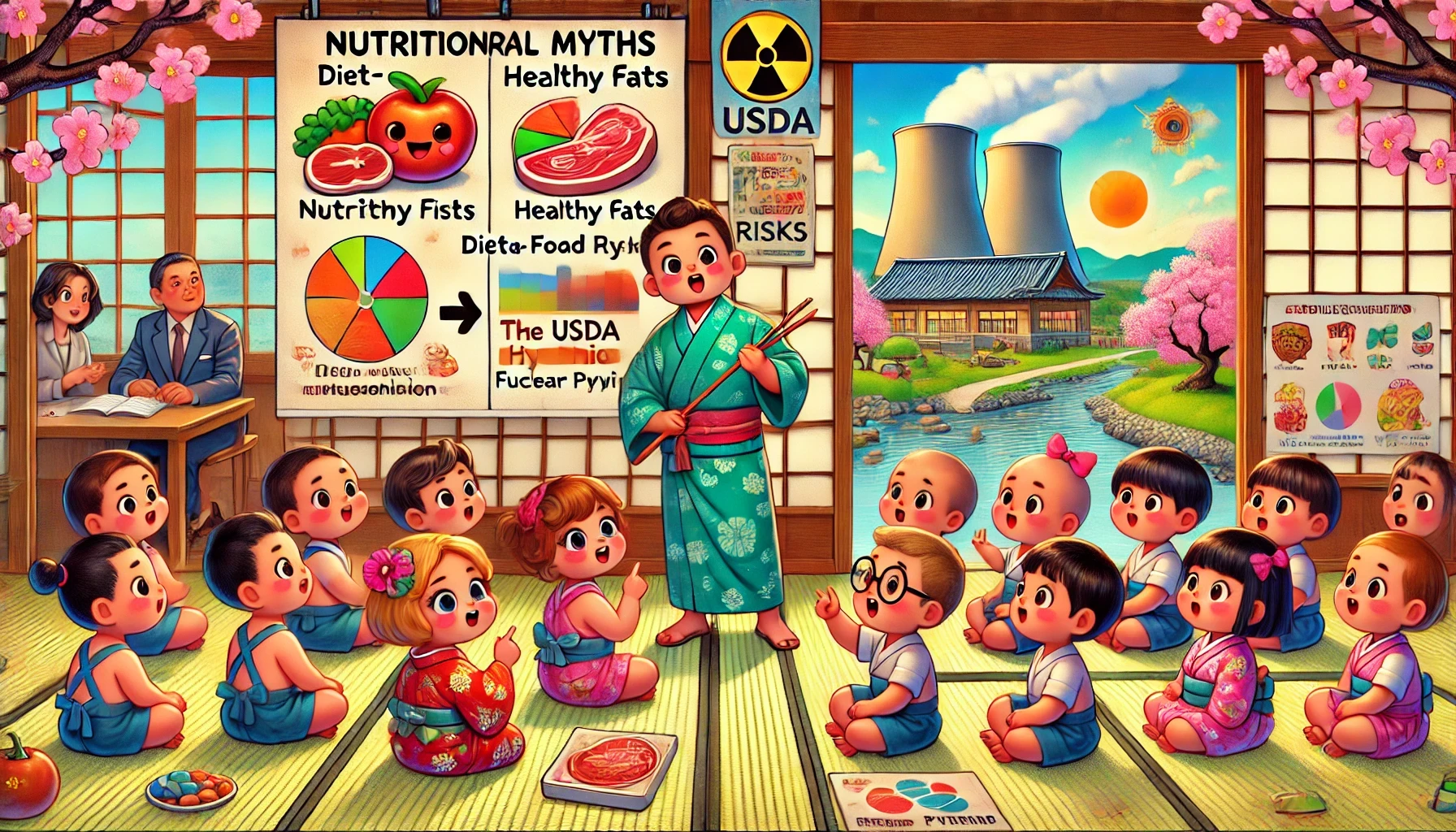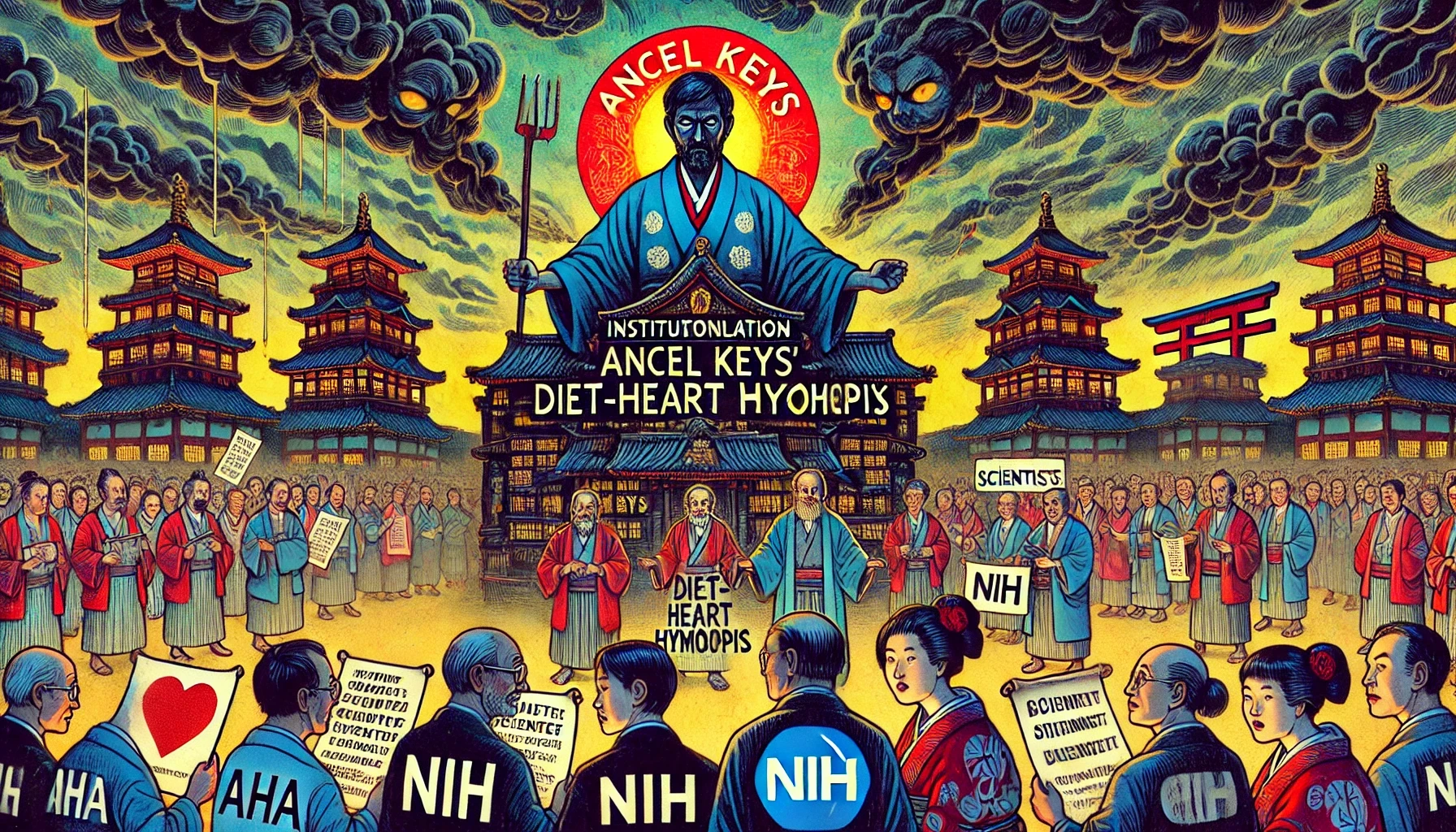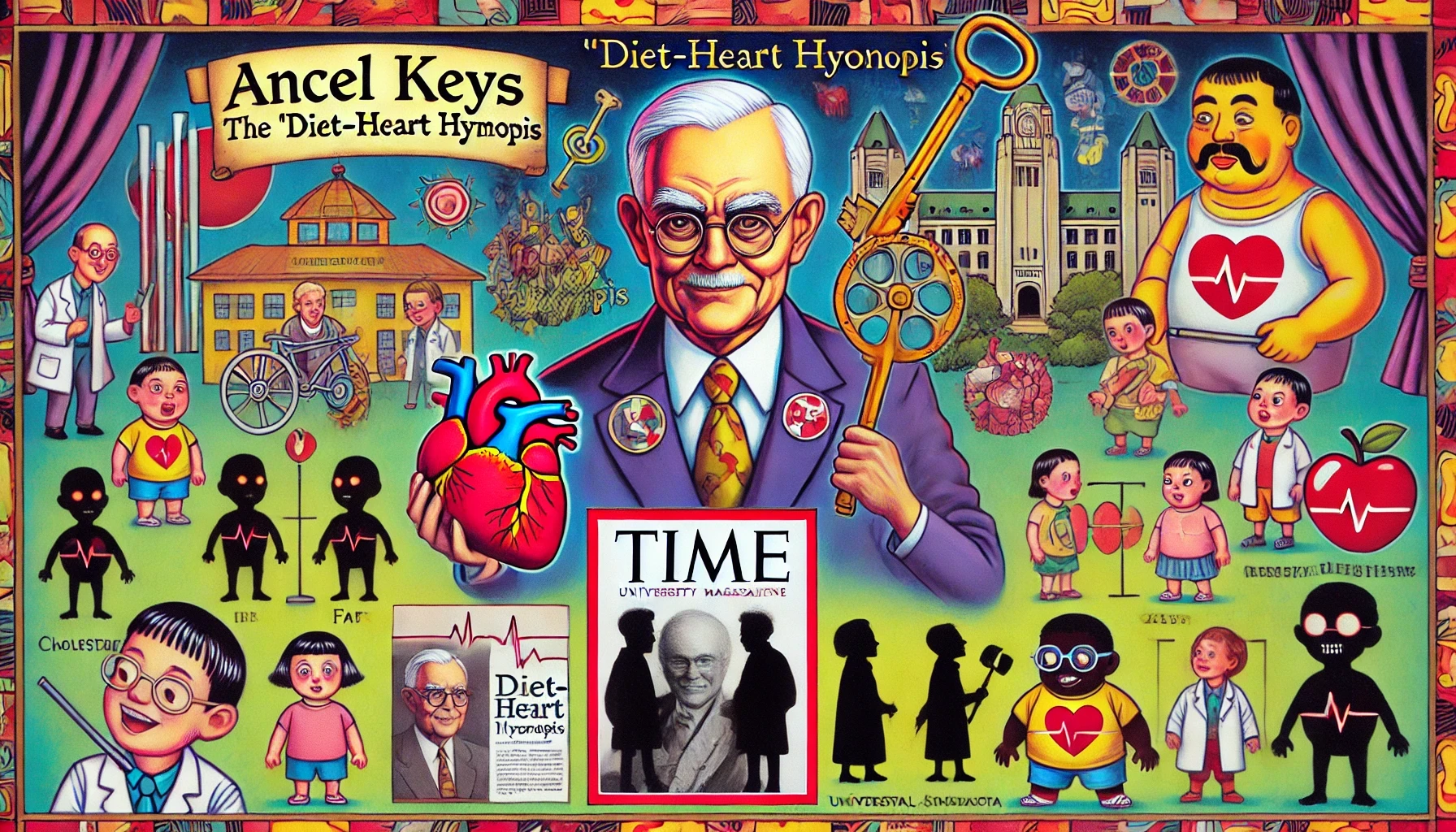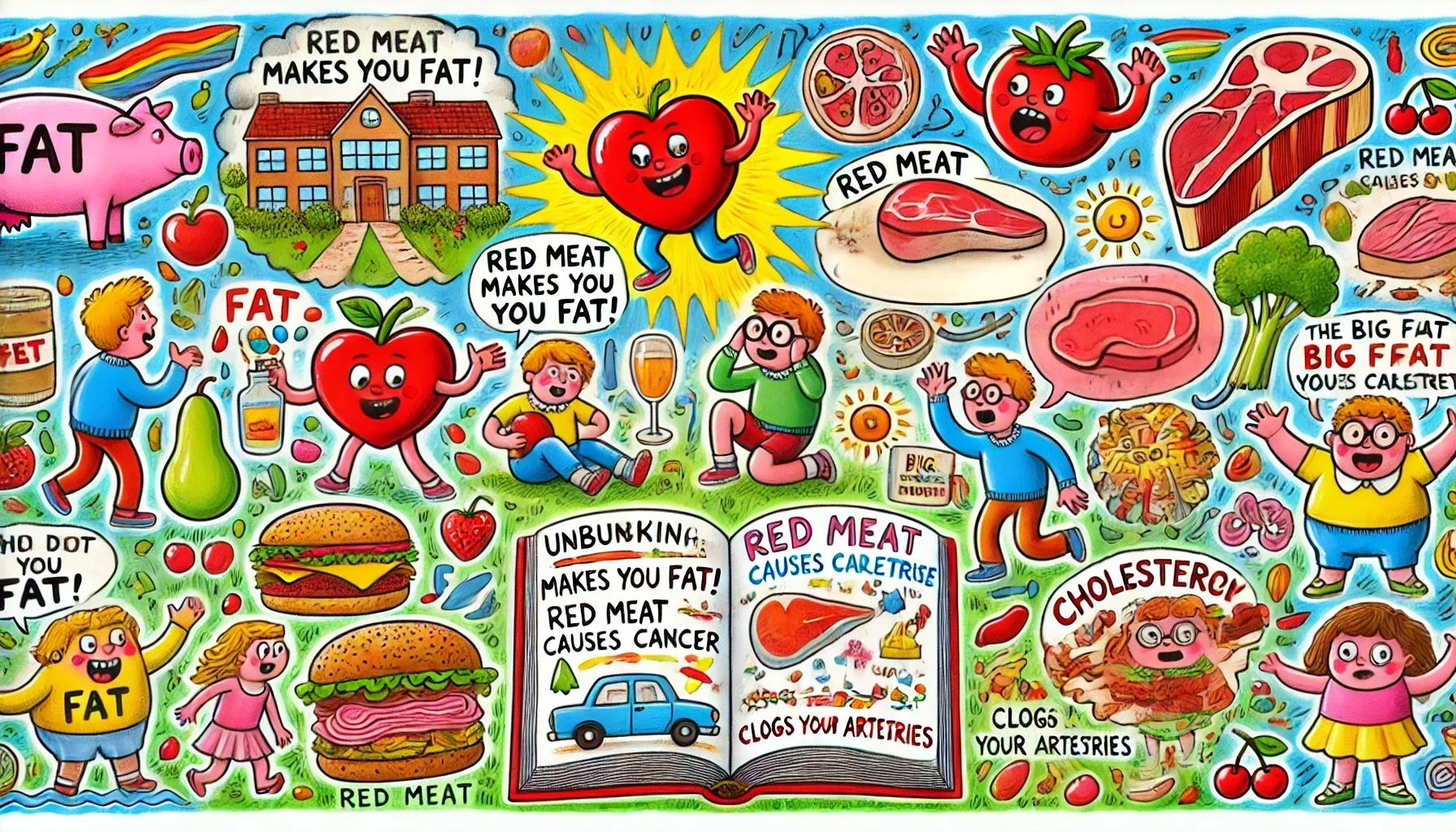ZENPTY.
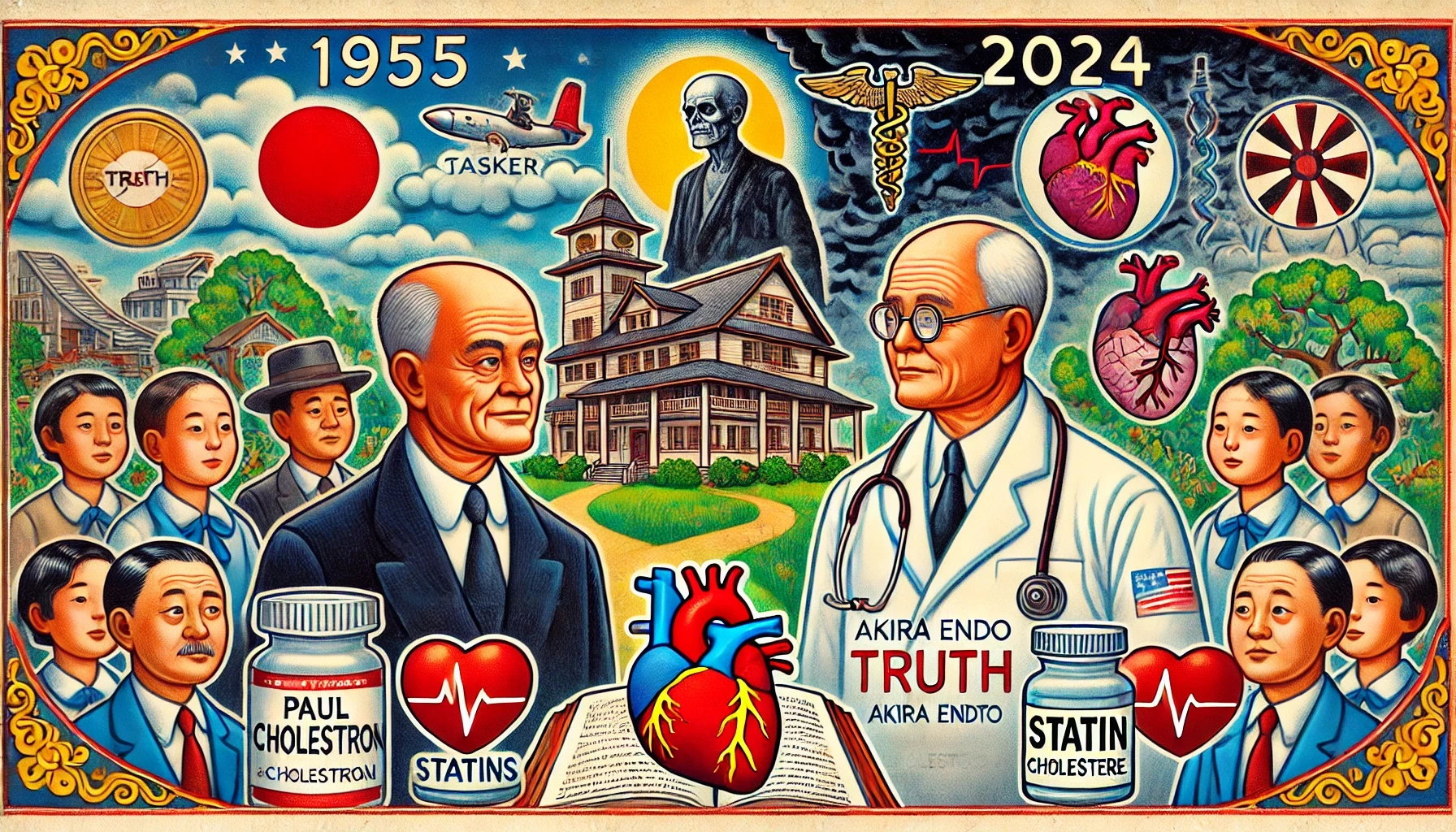
From Eisenhower to Endo: The Evolution of Heart Health Myths
Aug 12, 2024
1955 marked a turning point in our understanding of dietary fat when President Dwight Eisenhower experienced his first heart attack. Following this, his personal doctor, Paul White, a cardiologist and founding member of the American Heart Association, advised the American public to quit smoking, reduce stress, and avoid diets high in saturated fat and cholesterol.
Fast forward to June 2024, when Akira Endo passed away at the age of 90 in a nursing home. Endo was not just any ordinary person; he was the 2008 winner of the Lasker Award for his work on developing the cholesterol-lowering drug known as statin. Despite his significant contributions, Endo remained relatively unknown in Japan and even within the medical community. In a health check-up in 2004, unaware of who he was, a doctor recommended statin to Endo for his elevated cholesterol. Interestingly, Endo declined.
Why would he refuse to use his own invention? Let's first understand what statins are.
Statins are drugs used to lower LDL cholesterol, prescribed by millions of doctors worldwide. According to Joseph Wu, a cardiologist and president of the American Heart Association, "This is the second-most important discovery of the century after penicillin." Dr. Endo also received the Canada Gairdner International Award in 2017. Across the Atlantic, Professor Bryan Williams, chief scientific and medical officer at the British Heart Foundation, lauded Endo's contributions, expressing regret that he never received the Nobel Prize.
While Dr. Endo's work on statins is widely praised for saving millions of lives by reducing cholesterol, I find it perplexing that the link between cholesterol and coronary disease is not as strong as we once believed. Moreover, the side effects of statins are concerning. For instance, Crestor's site warns that "CRESTOR may cause an increase in your blood sugar levels." Lowering cholesterol might reduce heart attack risk but could increase the risk of diabetes, which in turn heightens the risk of heart disease, stroke, and dementia. Essentially, what is the benefit of reducing cholesterol if it potentially shortens your lifespan?
Let's refer to "The Big Fat Surprise" to understand how we began associating cholesterol with heart attacks.
Cholesterol is a crucial component of our cell membranes, responsible for the production of sex hormones like estrogen and testosterone, as well as other hormones such as cortisol and serotonin, which regulate our mood and stress levels. Thyroid hormones like T3 and T4, vital for metabolism and temperature control, are also derived from cholesterol. Simply put, cholesterol is essential for our well-being.
So, why did we start viewing cholesterol as harmful, to the extent of taking drugs like statins to reduce it?
The association began when researchers noticed a waxy buildup in the arteries of heart attack victims, with cholesterol being a major component. This led to the assumption that cholesterol was a primary culprit in coronary disease.
Early evidence linking cholesterol to heart disease included a nineteenth-century report of an eleven-year-old girl with high cholesterol who had a heart attack. In 1913, Russian pathologist Nikolaj Anitschkow induced atherosclerosis in rabbits by feeding them large amounts of cholesterol. By the 1950s, the consensus among medical professionals was that high cholesterol levels likely caused heart disease. However, these observations were far from conclusive. Cholesterol might be present during heart disease, but it wasn't clear if it was the cause. Despite this uncertainty, the cholesterol hypothesis gained traction, leading to recommendations to reduce dietary cholesterol.
This anti-cholesterol sentiment persisted into the 1960s when Dr. Endo arrived at the Albert Einstein College of Medicine in New York in 1966. Initially focused on stroke, Endo shifted his attention to heart disease, motivated by the prevalence of heart attack patients and large portion sizes in American restaurants.
Back in Japan, Dr. Endo developed statins through trial and error, cultivating over 6,000 cultures to find a compound that could inhibit a liver enzyme involved in cholesterol production. This led to the first statin, with global sales expected to reach $22 billion by 2032. Shizuya Yamashita, Chairman of the Japan Atherosclerosis Society, expressed strong support for statins, citing their proven effectiveness.
Dr. Endo seemed content with his achievements, stating that his success with statins fulfilled his childhood dream and garnered worldwide appreciation. However, one might wonder if he ever questioned cholesterol's role in cardiovascular disease. What would he have said if he knew his invention had no significant impact on reducing cholesterol and improving all-cause mortality?
During my research, I discovered a thought-provoking lecture by Dr. Paul Mason titled “The Shady Truth About Statins.” The lecture exposed the side effects and limited benefits of statins. The most startling revelation was that in 2004, Dr. Endo, upon finding his LDL cholesterol elevated, chose to exercise more instead of taking statins. He cited a Japanese proverb, 紺屋の白袴, meaning “The indigo dyer wears white trousers.” This could imply that he didn't promote his invention because its effectiveness spoke for itself, or perhaps he recognized the potential toxicity of statins.
Now that he is gone, we may never know the real answer. But regardless, I wouldn’t mind following his example when it comes to lowering cholesterol: don’t.
Next: Unmasking the Villain: Ancel Keys and the War on Saturated Fat
This is part 2 of the series on “The Big Fat Surprise.”
A Carnivore Journey: How Letting Go of Carbs Opened New Doors
Nutritional Myths and Nuclear Risks: The Parallel Stories of Regulatory Capture
Silencing Dissent: How Ancel Keys' Hypothesis Dominated Nutrition Science
Ancel Keys and the Diet-Heart Hypothesis: A Deep Dive into Flawed Science
Unmasking the Villain: Ancel Keys and the War on Saturated Fat
Red Meat, Cholesterol, and Fat: Challenging Conventional Wisdom


